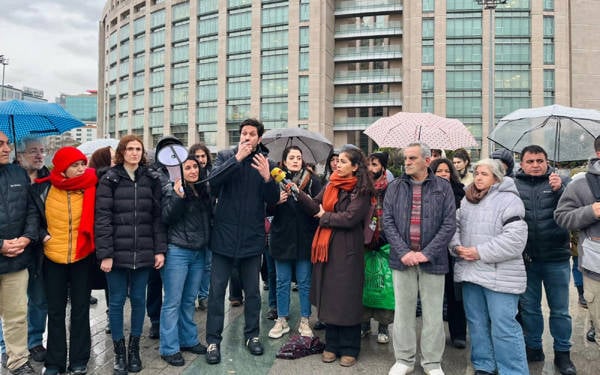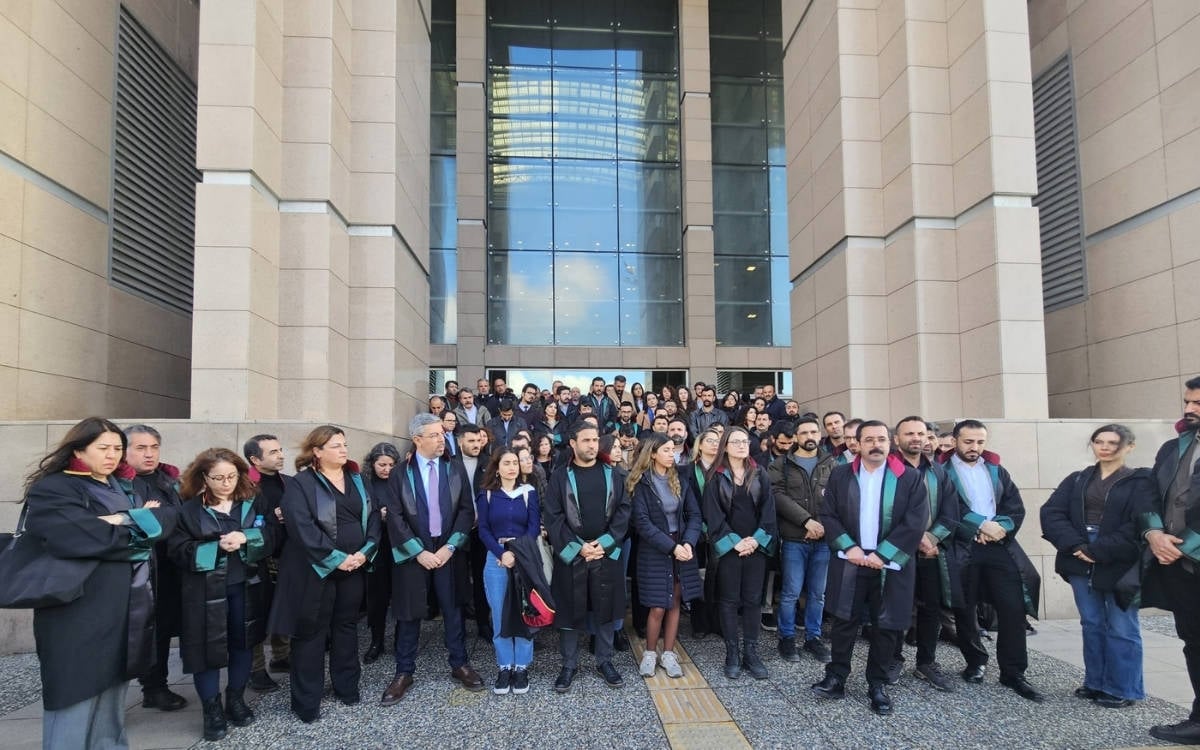LGBTI+ activist and member of the Workers' Party of Turkey (TİP), İris Mozalar, was detained late Wednesday during a raid on her home in İstanbul.
Mozalar was brought before a judge today with a request for her arrest. The prosecutor has charged her under Article 216/1 of the Turkish Penal Code, known as the crime of ‘inciting hatred and animosity among the public.’ A court arrested her later in the day.
The reason for Mozalar's detention relates to her social media posts following attacks on Syrian-owned businesses and vehicles in Kayseri on June 30. The attacks occurred after allegations surfaced of a Syrian man assaulting a child..
In her posts, Mozalar expressed opposition to the attacks on refugees and advocated for everyone in Turkey to "live happily and equally."
TİP condemned Mozalar's arrest in a written statement: "Our comrade İris has been arrested by the court for standing against the attacks on refugees. We will continue our struggle until peace and brotherhood prevail in our country instead of hate and hostility."
“No elements of crime”
Mozalar’s lawyer, Gizem Karaköçek, spoke to bianet about the case, saying, “My client’s social media statements were intended to preserve public order and peace, but this was misinterpreted. We emphasized in our defense that her statements fall under freedom of expression.
“There is no element of crime in her statements. The law requires a clear and imminent threat for this crime, which is not present in this case. We hope for her release.”
Support from Pride Week committee
The İstanbul LGBTI+ Pride Week committee issued a statement regarding the arrest request for Mozalar: “Our friend İris Mozalar was detained from her home last night over a tweet, held overnight, and brought before a judge this morning with a request for arrest. Freedom of expression cannot be suppressed. We demand her immediate release.”
Article 216: Incitement to Hatred and Hostility or Degrading
1. Anyone who publicly incites a segment of the population to hatred and hostility against another segment based on social class, race, religion, sect, or regional differences, and thereby creates a clear and imminent danger to public safety, shall be sentenced to one to three years in prison.
2. Anyone who publicly degrades a segment of the population based on social class, race, religion, sect, gender, or regional differences shall be sentenced to six months to one year in prison.
3. Anyone who publicly degrades the religious values of a segment of the population, if the act is capable of disturbing public peace, shall be sentenced to six months to one year in prison.
(TY/VK)














